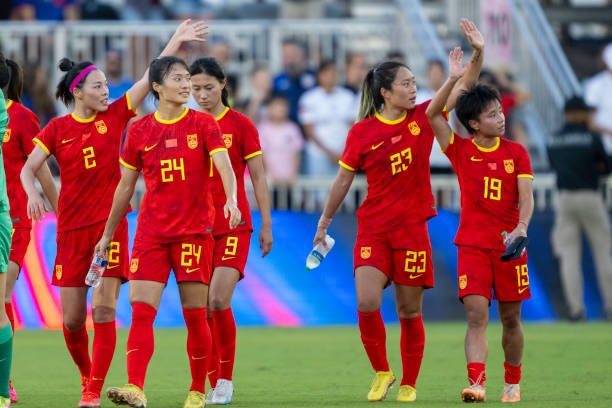China’s aspirations to be a football superpower have hit a new low. On a hot Thursday night in Saitama, the national team faced Japan and suffered a staggering 7-0 defeat, marking their worst result in World Cup qualifying history. With just a minute left, Japan’s Takefusa Kubo scored the final goal, sealing the loss for China.
This crushing defeat followed a series of humiliating losses to teams like Oman, Uzbekistan, and Hong Kong. Matters worsened when many players and coaches were implicated in a corruption scandal involving gambling and match-fixing. This incident underscored the ongoing struggles faced by Chinese football, culminating in another loss to Australia, leaving China at the bottom of its World Cup qualifying group.
China had once dreamed of football glory, backed by its vast population, strong economy, and a government led by President Xi Jinping, who is an avid football fan. Xi’s vision included qualifying for the World Cup, hosting it, and ultimately winning it. However, a decade later, even Xi appears disillusioned, casually stating that China had “got lucky” in a recent win against Thailand.
Experts argue that the root of China’s football woes lies in its political structure. While other sectors flourish, the state’s tight control over football has hampered its growth. A 2015 report indicated that the Chinese Football Association (CFA) needed legal autonomy from the government. However, the Communist Party has not relinquished control, leading to poor decision-making in football.
China’s model imposes top-down decisions, ineffective for fostering competitive team sports. Political appointments are rampant, with the current CFA president also holding a Party position. This structure prevents the development of grassroots football, which is essential for cultivating talent. As a result, China’s talent pool remains shallow compared to countries like England, where millions play the sport.
Historically, China’s first professional league was established only in the 1990s, neglecting the grassroots level. Officials often favor short-term results over long-term development, stymieing meaningful progress. Observers note that while Chinese players may have technical skills, they often lack the game intelligence necessary for success.
Despite the challenges faced by the men’s team, football remains deeply loved in China. The women’s team continues to be a source of national pride, with millions tuning in to watch their games. The men’s Super League, once flourishing, has suffered since the pandemic, with more than 40 clubs shutting down as investment wavers.
High-profile cases of corruption have emerged, including the admission of former national team coach Li Tie, who confessed to match-fixing. His imprisonment reflects a broader systemic issue within Chinese football. The state recently aired a documentary exposing corruption, indicating the government’s concern over the state of the sport.
As China’s economy faces challenges, football remains on the back burner. Fans are left to cope with constant disappointment. Following the loss against Japan, sentiments among supporters ranged from humor to resignation. One fan quipped that for China to thrive economically, the national football team must endure hardships.
In conclusion, China’s journey in football highlights that success cannot be achieved through politics alone. It requires skill, development, and a focus on grassroots engagement. The road ahead is long, but the passion for football remains strong among fans who deserve better outcomes for their beloved sport.


















